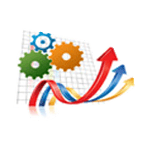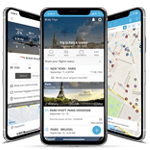Awarded Best Travel Software Company 2019
Africa
Caribbean
- Antigua & Barbuda
- Anguilla
- Aruba
- Barbados
- Saint Barthelemy
- Bermuda
- Bonaire St Eustatius
- Bahamas
- Curaçao
- Dominica
- Dominican Republic
- Grenada
- Guadeloupe
- Jamaica
- Saint Kitts and Nevis
- Cayman Islands
- Saint Lucia
- Saint Martin
- Martinique
- Puerto Rico
- Sint Maarten
- Turks & Caicos Islands
- Trinidad and Tobago
- Saint Vincent & Grenadines
- U.K. Virgin Islands
- U.S. Virgin Islands
Middle East
Europe
- Andorra
- Albania
- Armenia
- Austria
- Azerbaijan
- Bosnia and Herzegovina
- Belgium
- Bulgaria
- Belarus
- Switzerland
- Cyprus
- Czech Republic
- Germany
- Denmark
- Estonia
- Spain
- Finland
- Faroe Islands
- France
- United Kingdom
- Georgia
- Gibraltar
- Greenland
- Greece
- Croatia
- Hungary
- Ireland
- Iceland
- Italy
- Liechtenstein
- Lithuania
- Luxembourg
- Latvia
- Monaco
- Moldova
- Montenegro
- Macedonia
- Malta
- Netherlands
- Norway
- Poland
- Portugal
- Romania
- Serbia
- Russia
- Sweden
- Slovenia
- Slovakia
- San Marino
- Turkey
- Ukraine
- Kosovo
- Georgia

Travel Data Platform
Don't lose customers to outdated information. Integrate a Travel Data Platform to get real-time travel data, boost bookings, and enhance customer satisfaction.
Trusted by World’s Leading Travel Brands
Travel Data Platform - A Key Strategic Tool for Travel Business Success
View your business data in one secure place, allowing you to access a world of quality analytics with Trawex’s Travel Data Platform.
What is meant by Travel Data Platform?

A Travel Data Platform is a centralized travel technology system that collects, processes, and saves huge amounts of travel-related data from numerous sources, making it accessible and usable for companies in the travel sector.
It collects data from numerous sources, including airlines, hotels, car rental agencies, tour operators, and global distribution systems (GDS), and makes it available via APIs, dashboards, and analytics tools.
The key objective of a Travel Data Platform is to enable real-time access to complete travel information. This contains flight schedules, pricing, availability, hotel details, client preferences, booking history, and other travel-related information.
The platform is designed to help businesses such as travel agencies, online travel agencies (OTAs), tour operators, and travel management companies make data-driven decisions and enhance their services.
Why is a Travel Data Platform Important for Travel Professionals?

In today's highly competitive travel market, data analytics are vital. Big data analytics has become an essential tool for travel companies, allowing them to obtain significant insights into client behavior, customize their offerings, and streamline their operations.
Big data analytics allows travel companies to make more informed decisions, generate targeted marketing campaigns, optimize pricing strategies, increase operational efficiency, and identify emerging trends.
As travel technology continues to evolve, Big Data will play an increasingly key role in shaping the future of the travel industry.
Travel companies are looking for extensive information, including passenger preferences, booking patterns, and more, to maximize their businesses. Big data can predict and deliver exactly what a customer needs, as well as illustrate opportunities for improvement.
Travel companies can use data analytics to look at buying patterns in real time, offer dynamic pricing options, enhance customer service, and anticipate issues by illustrating the right inferences from the analysis. Agencies can additionally provide personalized packages and tailor-made services to build client loyalty.
As a result, data analytics is important in helping travel companies stay competitive by making data-driven decisions that increase operational efficiency and customer satisfaction.
By combining real-time data from a range of travel services such as airlines, hotels, car rentals, and excursions, businesses can streamline booking processes, increase decision-making, and provide consumers with tailored experiences.
With precise, up-to-date information at their fingertips, travel professionals can enhance operational efficiency, increase client engagement, and stay competitive in a fast-paced industry.
Travel professionals, including travel agencies, tour operators, and OTAs (Online Travel Agencies), rely on an ongoing source of data from a range of sources, including airlines, hotels, car rentals, and third-party suppliers.
A Travel Data Platform collects and integrates all of this information into a single unified system, providing easy access and management. This is vital because the travel industry operates in an ever-changing marketplace where prices, availability, and schedules change constantly. With a consolidated data platform, travel experts can provide the most up-to-date information, ensuring that their consumers have access to the best options and deals in real-time.
Furthermore, such systems offer advanced capabilities for dynamic pricing, customization, and customer relationship management (CRM), all of which are vital to staying competitive. Travel professionals can utilize these capabilities to adapt their products, track booking trends, and respond quickly to market demands. This type of data-driven insight not only aids in providing greater customer service, but also promotes business growth by increasing operational efficiency.
The platform's ability to manage large amounts of data from many sources enables companies to scale their operations seamlessly while maintaining service quality and speed.
Overall, a Travel Data Integration provides travel professionals with the resources they need to make better decisions, increase client experiences, streamline operations, and stay competitive in a fast-paced industry.
Business travel data can help companies enhance their travel processes in several ways. The 5 top areas in which business travel data can help a business upgrade are:
- Reduce Travel cost
- Improve Traveler Experience
- Increase Travel ROI
- Improve Traveler Wellness
- Increase Sustainability
How does the Travel Data Platform work?

A travel data platform collects and organizes travel-related information from a range of sources, including airlines, hotels, car rental companies, and tour operators.
Here’s a simple breakdown of how it functions:
- Data Collection: The platform collects data from a range of sources, including airlines and hotel chains, and uses APIs (Application Programming Interfaces) to get the latest details like as pricing, availability, and scheduling.
- Centralization: All of this data is consolidated into a single system, allowing travel operators to access everything in one location.
- Search and Booking: Travel companies or clients can look for services such as flights or hotels based on their choices (dates or pricing). Once the appropriate options have been identified, bookings can be made instantly through the platform.
- Real-time updates: The platform updates in real-time, ensuring that companies and customers get the most up-to-date information, such as flight delays or pricing modifications.
- Payment & Transactions: The system includes secure payment gateways, allowing for easy transactions while booking flights, hotels, and other travel services.
- Analytics and Reporting: It also offers reports and data insights to assist travel companies in identifying client preferences, tracking reservations, and making informed decisions.
How to use Business Travel Data effectively for optimizing the business travel process?
Here are some tips for using data effectively for your travel business:
Identify the essential data points you need to track. Before you start gathering data, you must identify the critical data points that are most significant to your business. This could include customer demographics, booking trends, and feedback, as well as data about your competitors and the overall market.
Use a CRM system. A customer relationship management (CRM) system could assist you to store and analyze customer data, as well as provide useful insights into client behavior and preferences. Using a CRM allows you to better manage client interactions, discover potential sales opportunities, and target marketing efforts.
Gather and evaluate client feedback. Customer feedback is a valuable source of data, and it can provide valuable insights into what customers like and dislike about your business. Collecting and evaluating consumer feedback allows you to discover areas for development while also tailoring your products and services to better align with customer demands.
Use data to enhance your marketing efforts. Data can also be utilized to improve your marketing efforts by enabling you to target the right customers at the right times. By analyzing customer data, you can identify trends and patterns, and you can use this data to tailor your marketing campaigns and target them more effectively.
Monitor and track your competitors. By tracking the data and trends of your competitors, you will get valuable insights into their operations and strategies, and you can use this data to enhance your own business. This could include tracking their pricing, customer feedback, and marketing efforts, as well as tracking travel industry trends and developments.
The Role of Big Data In Personalizing Travel Experiences
Personalization in the travel industry is now essential. Big data is revolutionizing the travel business by allowing for more tailored experiences for travelers. Travel companies can collect data from various sources, such as social media, booking patterns, mobile apps, and loyalty programs, to build detailed customer profiles. This enables them to provide customized recommendations for excursions, accommodation, and activities based on past preferences and behaviors. Predictive analytics increases customization by determining a customer's travel needs and delivering relevant promotions or services at the right time.
Real-time data allows for location-based services, such as sending recommendations or updates while a traveler is on their trip, ensuring a seamless experience. Big data also enhances customer service by proactively resolving issues and providing personalized support.
Furthermore, sentiment analysis enables businesses to evaluate customer feedback and make modifications to better future experiences.
Personalized marketing campaigns can target specific segments of customers, ensuring that promotions and offers are relevant to each individual. Ultimately, big data helps travel companies to provide more relevant, engaging, and fulfilling travel experiences, increasing client loyalty and satisfaction.
Why choose Trawex for Travel Data Platform?
Trawex is a leading provider of Travel Agency Data Platforms, shaping the future of travel and tourism with data-driven travel solutions that encourage sustainability and resilience in an ever-changing industry.
Trawex provides a complete Travel Data Integration that helps travel companies streamline operations and provide tailored consumer experiences. The platform brings together a range of travel services, such as flight bookings, hotel reservations, car rentals, and activities, from various sources such as Global Distribution Systems (GDS), low-cost carriers, and direct suppliers.
Trawex provides travel agents with real-time data, ensuring that consumers receive accurate and up-to-date information for their travel needs.
With its highly customizable and scalable options, Trawex is ideal for businesses of all sizes, providing tools for seamless API integrations, advanced analytics, and a powerful booking engine. The platform also allows travel agencies to provide personalized recommendations and optimized pricing strategies, increasing customer satisfaction and driving growth. Whether you're a small agency or a large travel organization, Trawex can help you optimize your operations and stay competitive in the ever-changing travel marketplaces.
Components of Travel Data
Travel data consists of numerous key elements required for analyzing travel behavior and enhancing travel experiences:
- Booking Data: Information on travel bookings, such as flight reservations, hotel reservations, car rentals, and tour packages, can provide insights about travel preferences, itinerary planning, and expenditure patterns.
- Accommodation Data: Details about accommodation options, such as hotels, vacation rentals, hostels, and bed-and-breakfast establishments, including availability, pricing, amenities, and guest reviews, impacting travel decisions and destination choices.
- Transportation Data: Data on transportation modes and routes, including air travel, rail travel, road transportation, and public transit options, guiding travel planning and itinerary optimization for travelers.
- Attraction Data: Information on tourist attractions, landmarks, cultural places, and recreational activities in travel destinations, such as opening hours, entrance costs, visitor ratings, and reviews, which impact travel experiences and sightseeing activities.
- Expenditure Data: Insights about travel expenditure trends, such as spending on transportation, accommodation, dining, shopping, entertainment, and other travel-related costs, can help businesses and destination marketers better understand travelers spending patterns and economic impacts.
Benefits of Big Data for the Travel Industry
Using big data in the travel sector offers several advantages. One of the most significant benefits is that it allows companies to better understand their consumers.
Knowing what clients need and want allows travel businesses to provide more tailored services, which makes customers satisfied and come back. Big data also enables travel businesses to run more effectively, save money, and generate more revenue.
Big data in the tourist industry helps businesses make better decisions. They can utilize data to identify new possibilities, increase marketing, and enhance their products.
This makes them more competitive and able to react quickly to changes in the market. Big data also contributes to safer travel by enabling businesses to better monitor and respond to potential risks.
Overall, employing big data in the travel sector allows businesses to provide better services, make more informed decisions, and guarantee that customers have a secure travel experience.
Key Applications of Data Analytics in Tourism
Personalized Customer Experience
By analyzing customer data, travel companies can understand the individual preferences of each customer and demographic. Understanding consumers' desires can provide travel companies with a competitive edge by improving meeting their demands, resulting in higher customer satisfaction and loyalty.
Optimized Pricing Strategies
By analyzing factors such as demand, competition, and historical booking data, travel companies can modify prices to optimize revenue. This optimized pricing enables travel agents to maximize revenues while providing affordable rates to their clients.
Improved operational efficiency
Data analytics optimizes operations by identifying inefficiencies. Understanding and accessing large volumes of data can aid companies in making informed decisions based on specific client data. These decisions can be made more quickly and accurately, reducing the risk of error.
Enhancing Customer Service with Real-Time Data
Real-time data analytics enables tourism companies to track and respond to client requirements as they occur. For example, if a guest posts a complaint on social media about an issue with their hotel room, real-time analytics can alert the hotel management, enabling them to address the problem promptly. This proactive strategy improves customer service as it shows the company is attentive and responsive. Real-time data also enables dynamic modifications in services, assisting tourism providers to stay flexible and adaptive.
Optimizing Marketing Strategies
Data analytics provides useful insights into client demographics, preferences, and behavior, allowing tourism organizations to fine-tune their marketing tactics. By analyzing data from online campaigns, social media, and customer reviews, marketers can identify which approaches are most effective and adjust their efforts appropriately.
For example, data could show that a specific demographic responds well to ads featuring adventure travel, prompting the business to allocate more resources to targeting that audience. This level of insight allows companies to engage customers more effectively, strengthening return on investment (ROI) in marketing.
Revenue Management and Dynamic Pricing
Dynamic pricing is an essential revenue management technique for tourism since it allows companies to customize rates in real-time based on demand, competitor prices, and other factors. Airlines, hotels, and car rental companies commonly use data analytics to find the best pricing at any given time, maximizing revenue while remaining competitive.
By analyzing factors such as booking patterns, historical prices, and peak seasons, businesses can set prices that attract more customers and drive higher profits, balancing cost with profitability.
Increasing operational efficiency
Operational efficiency is critical for tourist companies to provide a consistent experience. Data analytics enhances operations by finding inefficiencies, optimizing scheduling, and predicting maintenance needs. Airlines, for example, can utilize data analytics to enhance flight schedules, minimizing delays and increasing reliability. Hotels can predict when facilities will require maintenance, preventing equipment malfunctions during peak times. By enhancing operational efficiency, data analytics helps tourism providers minimize disruptions and deliver smooth, reliable services to their customers.
Ready to get started with Trawex?
For those looking to revolutionize their travel agency's capabilities and enhance operational efficiency, embracing Trawex's Travel Data API is the first step toward a future of infinite travel options and unparalleled service excellence. Discover how our Travel Data Module could assist your travel business. Contact us now for a free consultation to discover how to boost client experiences and increase efficiency.
| Last reviewed on | March 17, 2025 |
|---|---|
| How we reviewed this article | We update our articles when new information becomes available. |
| Current version | March 17, 2025 |
| Written By | Kristeen Cherney |
What We Offer
Trawex platform currently empowers 1000+ customers across 4 continents, 10000+ bookings a day, 1000000+ travel searches a day, across 200+ Suppliers, 600,000+ Hotels, 1000+ Airlines, 200,000+ Activities, 30,000+ Cruise Itineraries and much more for your brand.
Inventory Consolidation
Instant integrations with more than 100 suppliers that are integrated on demand.
Travel APIs
A complete set of travel APIs that empower our clients to develop custom travel solutions.
Custom Modules
A production-ready library of Modules that can be used as is or customized as per your requirement.
Faster Time to Market
Integrate suppliers in matter of few days. Over 100 suppliers maintained.
-
![B2C Travel Technology | Online Booking Software | Travel Website Development B2C Travel Technology | Top 10 Travel Technology Providers | Travel Business Software | Top 10 Travel Technology Companies | Online Booking Software | Travel Website Development]()
Travel Portal
Development -
![Travel Technology | Travel Business Software | Online Booking Software | Travel Website Development Travel Technology | Top 10 Travel Technology Providers | Travel Business Software | Top 10 Travel Technology Companies | Online Booking Software | Travel Website Development]()
Travel APIs
Dummy Text -
![Travel Technology XML Integration | Travel Business Software | Online Booking Software | Online Travel Portal Development Travel Technology XML Integration | Travel Business Software | Top 10 Travel Technology Providers | Top 10 Travel Technology Companies | Online Travel Portal Development]()
White Label
Travel Websites -
![B2B Reservation Platform | Travel Business Software | Online Booking Software | Online Travel Portal Development B2B Reservation Platform | Travel Business Software | Top 10 Travel Technology Providers | Top 10 Travel Technology Companies | Online Travel Portal Development]()
B2C / B2B
Booking Engines -

Itinerary Planner
-
![Travel Technology | Travel Business Software | Online Booking Software | Online Travel Portal Development Travel Technology | Travel Business Software | Online Booking Software | Online Travel Portal Development]()
BackOffice Solutions
Dummy Text
How We Engage

We Help Your Own Developers
- Third Party API Integrations
- Own Inventory Management System
- Offer your Customers Unparalleled Content
- Fully Managed Service
- Comprehensive travel inventory management system




Customized Hosted Solution
- Third Party API Integrations
- Own Inventory Management System
- Offer your Customers Unparalleled Content
- Fully Managed Service
- Comprehensive travel inventory management system


Off The Shelf
- Pre-integrated suppliers to provide the best inventory and prices
- Comes with Trawex APIs to build websites and apps in a fraction of time
- World Renowned Reliability
- Faster Time To Market
- Best user experience with 99.9% uptime

Grow Your Business with a Powerful Online Engagement Platform and Experienced Travel Partner
You won't be going on the engagement journey alone. We're there as a partner to help, support and advise to ensure your ultimate success.
- Online travel booking engine
- Multiple sales channels - B2B, B2B2B, B2B2C
- Centralised mid-office
- Ability to connect multiple GDS, LCC, and third party APIs
- Complete Reservation Management
- Travel Agent Management
- Transactional Accounting
- Accounting System Integration
- Comprehensive system to manage rates, discounts and allocation
- Payment Gateway Integration
- Multiple Supplier APIs
- Add direct contracts
- Redistribution API
- Configure credit limit and deposits
- Multilingual travel websites
- Add offline travel bookings
- Distribute white labels
- Dynamic fare caching
- Commissions and markup control
- Advanced Reports
- Manage multiple branches
- Sub Agents can create and manage multiple branches and users
- Optional cross selling platform
- SMS gateway
- Multi currency transactions for agents and suppliers
- Business intelligence reports
Skyrocket your business growth with Trawex
-
Our products empower Retail Sales.
-
Analyzing your requirements, fulfilling your business objectives and providing
you the right solution. -
Our engineering team has a relentless focus on delivering a scalable and reliable
technology platform. - Choose the right travel technology development service that fits your needs and business goals.
- We Deliver the best of our firm to every client as cost effectively as we can.
-
We are excited about building strong relationships with everyone and we provide
world class Support to our customers.






